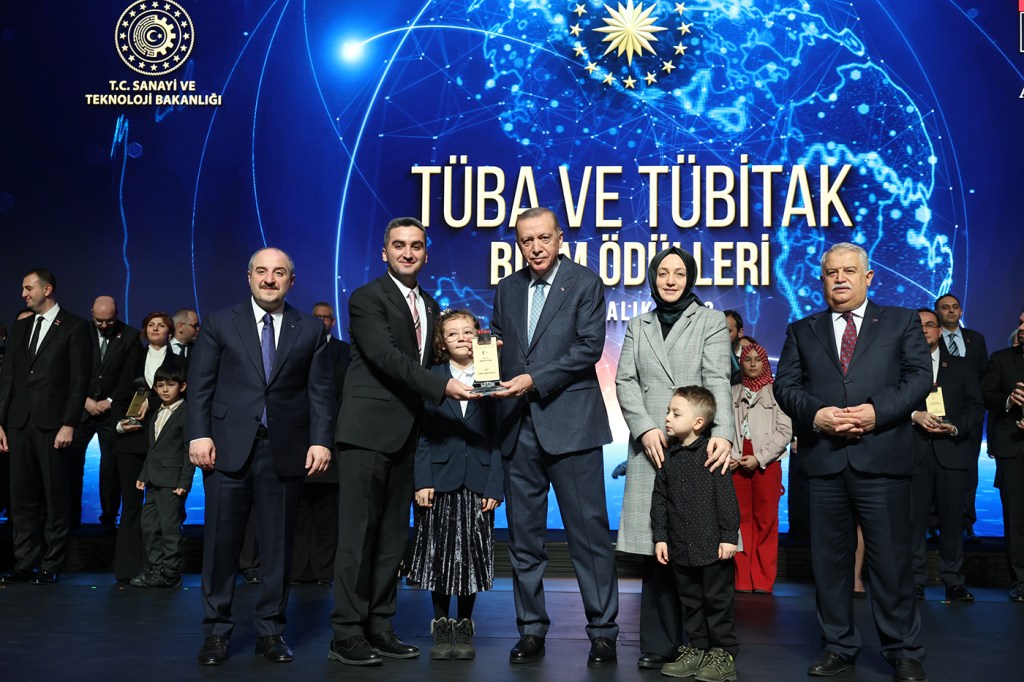Northeastern graduate wins Outstanding Young Scientist Award, hopes to close research gap in Turkey

Medicare and Medicaid are the largest health insurance programs in the U.S. The impact they have on the health outcomes of Americans, and the role they play in the economy, are topics of endless discussion and debate.
But when it comes to the social effects of health insurance programs in other parts of the world, scholarship is sorely lacking.
That’s according to Abdullah Tirgil, who graduated from Northeastern in 2016. A professor at Ankara Yıldırım Beyazıt University with an interest in health economics, Tirgil hopes to close that research gap in his home country of Turkey by looking at some of the most pressing issues facing its vulnerable populations.
“I’m studying different aspects of health,” Tirgil says. “You guys do this in the United States a lot, but we’re just starting to work on these things.”
Under the supervision of William Dickens, university distinguished professor of economics and social policy at Northeastern, Tirgil graduated with a Ph.D. in health econometrics before taking up a teaching position at the 13-year-old Turkish university.
While completing his doctoral work, Tirgil studied the effects of a green card health insurance program on low-income households in Turkey. His paper, published in BMJ Global Health, concluded that expanded coverage for Turkey’s poor reduced their out-of-pocket expenses, leading to greater financial protection for the country’s most vulnerable.
Now, he’s working on several projects, including one he says explores the causal effects of education on mental health in Turkey.
As a result of his work, Tirgil received Turkey’s Outstanding Young Scientist Award—an annual award given to a handful of emerging Turkish scientists to help finance their research in the Middle East country.

Turkey’s president, Recep Tayyip Erdoğan, presented Tirgil with the award last month. Dickens, in a recommendation letter that accompanied Tirgil’s application for the award, praised Tirgil for his “excellent track record of first-rate public policy research.”
“He is, without a doubt, the most successful of the many doctoral students I have mentored during my time at Northeastern,” Dickens wrote.
“Professor Tirgil’s work in this area is particularly important because there are almost no studies of the impact of public insurance programs in transitional economies,” Dickens added.
Since roughly 2011, when the civil war in Syria broke out following widespread protests across the Middle East, referred to as the so-called Arab Spring, Turkey has been home to millions of Syrian refugees fleeing conflict.
“Millions of people have been forced to leave their countries,” Tirgil says.
Among other questions, Tirgil is now looking to understand how Turkish citizens’ use of healthcare services has been affected by the arrival of Syrian asylum seekers—specifically, how health expenditures have changed as a result of that influx.
Turkey has universal health coverage that extends to Syrians nationals, regardless of whether or not they are registered with the country. This may be causing a crowding out of public health care in Turkey, Tirgil says.
“Inequities in health care financing, access and utilization are of great concern for these [Turkish] people,” he says. “Most of them cannot afford to buy healthcare on their own; we know that. And the literature states they will forgo the treatment they need, or push themselves further into poverty to obtain the treatment.”
“If we can’t help them, we might face greater problems,” Tirgil says. “I believe governments need to intervene in these problems to help those in need.”
Tanner Stening is a Northeastern Global News reporter. Email him at t.stening@northeastern.edu. Follow him on Twitter @tstening90.






